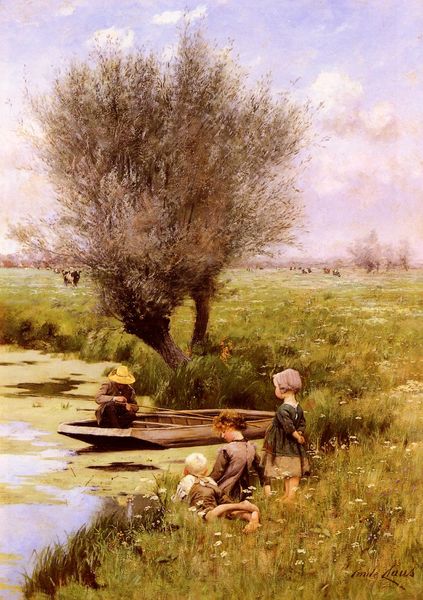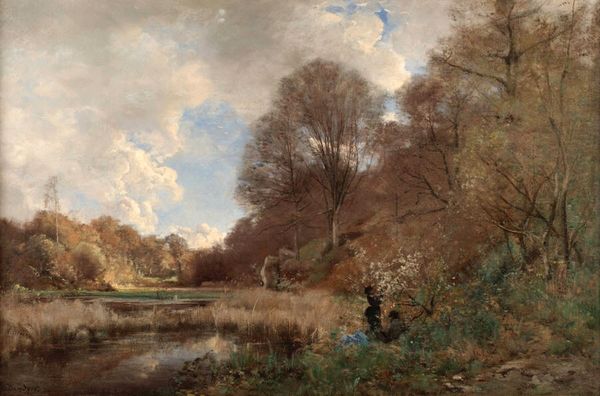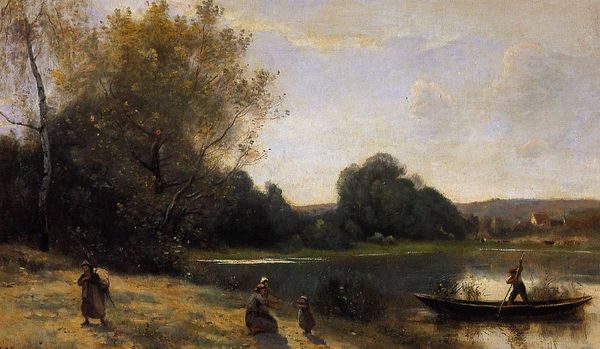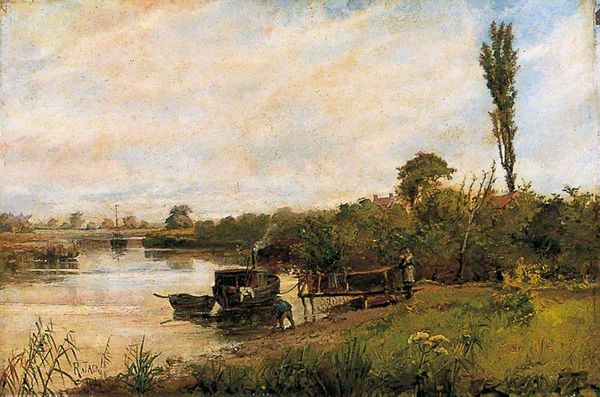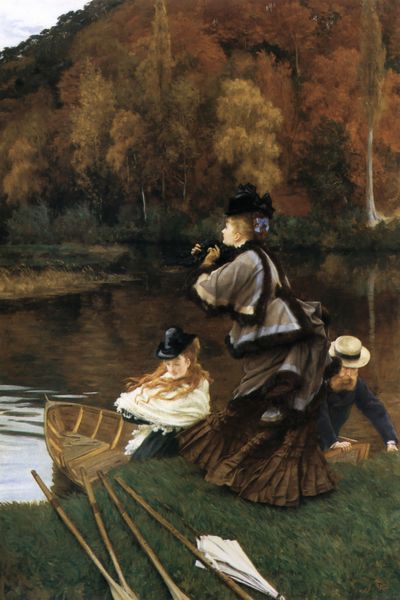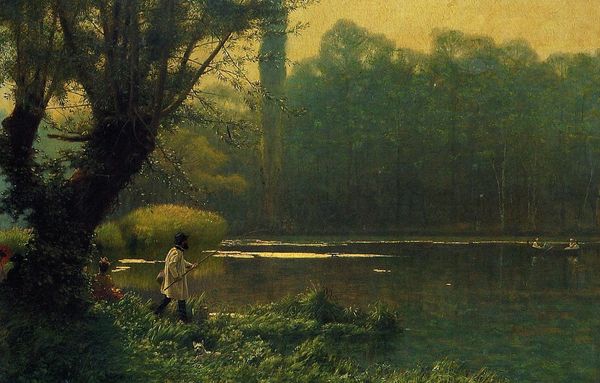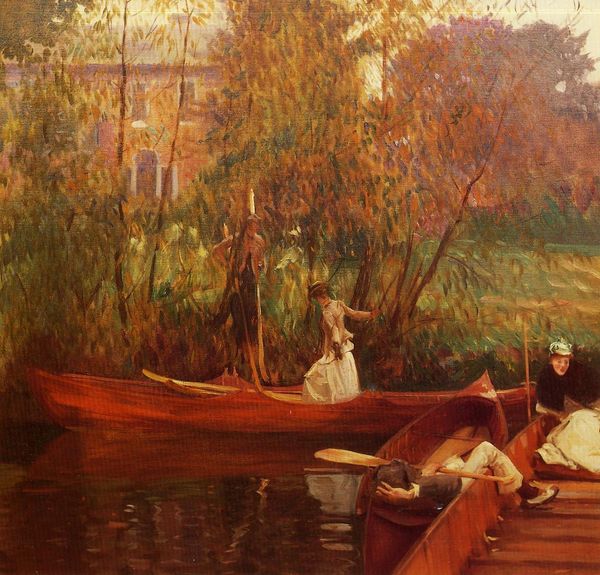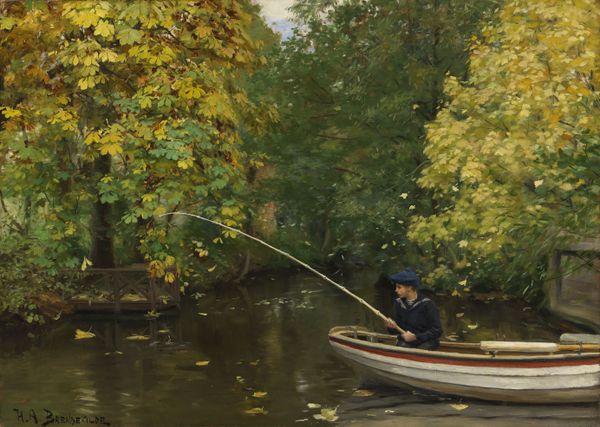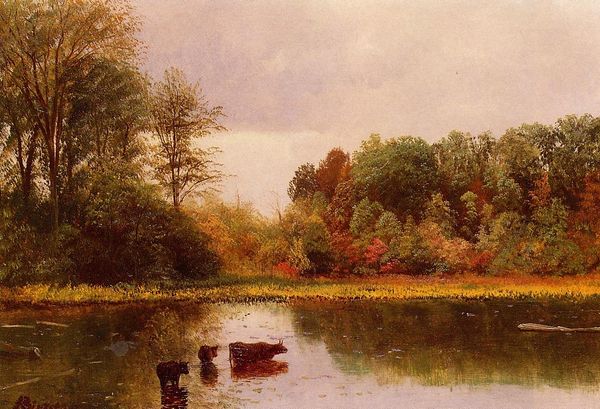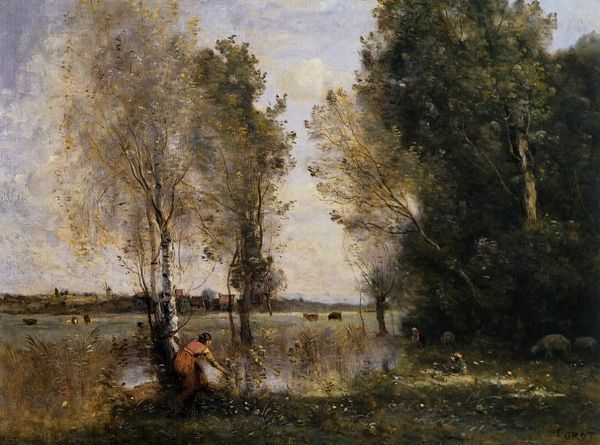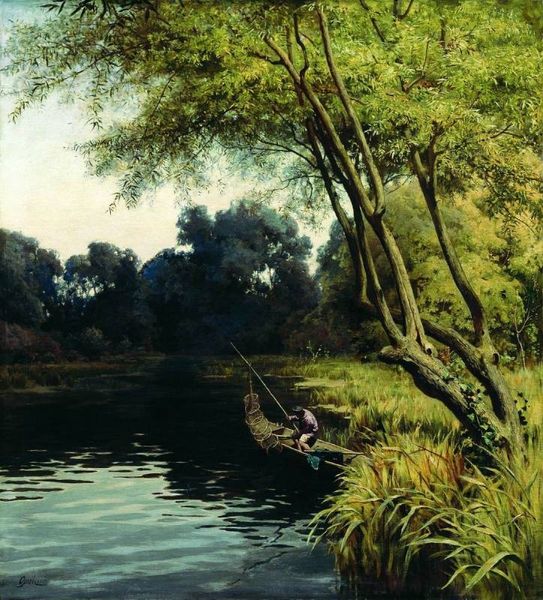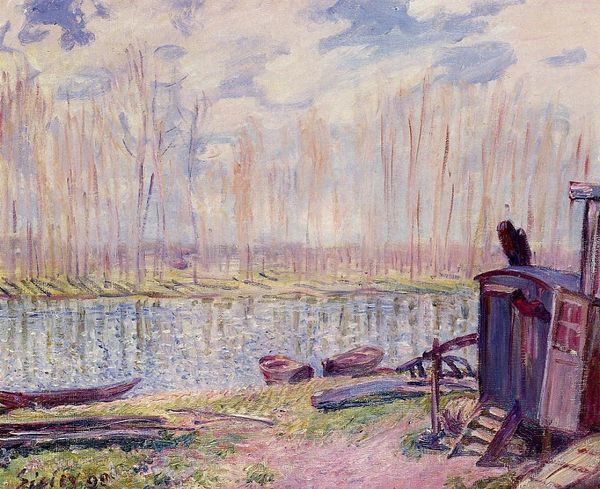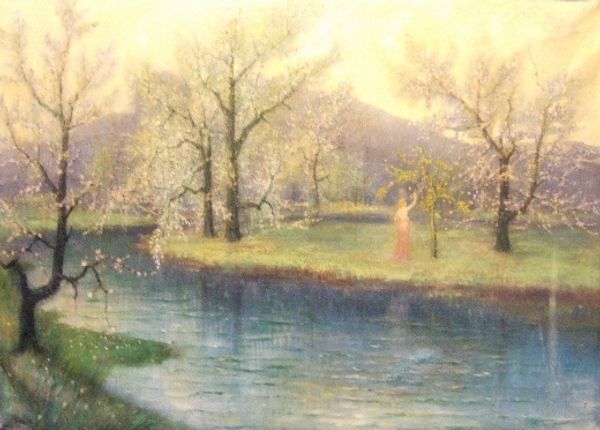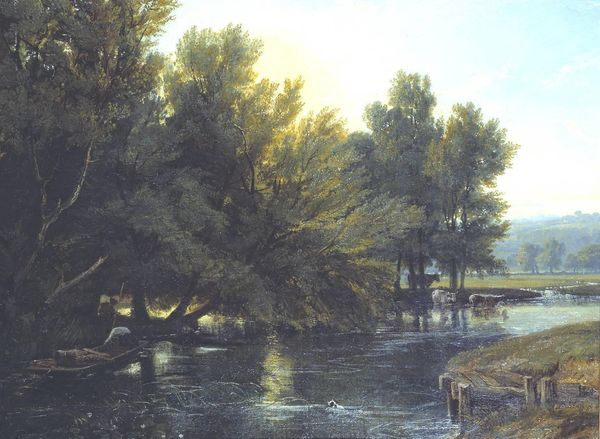
Copyright: Public domain
Curator: As we turn, we find ourselves before Émile Claus's "Bringing in the Nets," painted in 1893. Editor: A liminal scene! That light feels brittle, and the figures huddled on the boat are somehow lonely in the expansive landscape. Curator: Claus was deeply invested in painting *en plein air*, immersing himself directly in the play of light and shadow, a clear nod to Impressionist concerns. For me it feels as if he is trying to distill a transient moment. Editor: I see it more as labor memorialized. The repetitive, rhythmic gestures required to cast and haul those nets, season after season… Think of the materiality: The fibers of the nets, the wood of the boat, the coarse clothes protecting the fishermen from the cold river water. It all speaks to the tough demands on human beings working within this ecosystem. Curator: True, but notice the softness with which he renders these rugged figures; his brushstrokes dissolve them into the landscape, as though they're both at the mercy and completely entwined with the environment. Editor: And what about the art materials themselves? Consider the societal role of the pigments Claus was using, where they were sourced from, the economic systems at play to put oil paints in the hands of artists to idealize what, from another perspective, is an ordinary scene. It brings into sharp focus who gets to interpret these narratives. Curator: Still, there’s such a powerful sense of atmosphere! I imagine a crisp, quiet morning; the sounds of water, birdsong—almost a preternatural calm broken only by human activity. Editor: Yes, a stillness bought with labor. The way those stark trees mirror the vertical lines of the men – are they tools, beings, resources extracted? These choices are made by the artist and reveal underlying concerns and themes. Curator: What an invitation into art-making as lived process—a fascinating conversation that reminds us art holds worlds inside of worlds. Editor: A lens to examine more critically all elements and systems—from creation to reception, consumption to extraction, leaving the viewer far from passive.
Comments
No comments
Be the first to comment and join the conversation on the ultimate creative platform.
